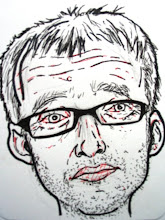Danish political micromanagement in action
It now seems that the Danish military will get to keep one of two types of cluster bombs that it owns, after a debate in the Danish Parliament, Folketinget. Cluster bombs have been the symbol of careless militarism and indifference towards civilians, as they have a tendency to leave some of their submunitions unexploded, for kids and others in the war zone to pick up. Recently the pension funds in Denmark were revealed to invest in companies that make this still popular weapon that is used to destroy vehicles, small buildings - and other people of course. Most of them quickly relocated their money and made sure to publicly announce that move.
Now the Military gets to keep its munitions despite a Norwegian report that claims that 10% of even the best bombs leave unexploded submunitions.
But it comes at a price. A broad range of parties have agreed to vote for the deal, under the condition that the government informs them whenever the clusterbombs are to be used. Please replay that scenario on your inner screen.
With this piece of deal-making, the parties have tried to tackle a touchy, symbolic weapons system by submitting it to parliamentary oversight. And as Denmark allegedly never has used cluster bombs in live missions, it seems to be a safe symbolic action to take for all involved parties, showing themselves as concerned, yet responsible.
But deals like this introduces a strange, delusional relationship between military and politicians. In effect, politicians are put in charge of tactical decisions. This is not a new phenomenon. During the Vietnam War, President Johnson and his staff were picking out targets in the air raids of "Operations Rolling Thunder" against North Vietnam. They did this because they wanted to avoid greater political repercussions and because aerial photos made it seemingly easy to ring a building or two on the map.
 However, politicians can't and shouldn't make tactical decisions like that, even though they might have political repercussions. For the Military's sake and for their own sake. If the Danish Parliament ever had to sanction the use of the bombs, they shouldbe faced with the detailed explanation and defence of the decision afterwards. This would give politicians a more visible symbolic hand in actual conflict. But I think it would be too easy to push the responsibility down the line blaming the commanders or the people pushing the button, and then the gesture of parliamentary oversight would be truly delusional.
However, politicians can't and shouldn't make tactical decisions like that, even though they might have political repercussions. For the Military's sake and for their own sake. If the Danish Parliament ever had to sanction the use of the bombs, they shouldbe faced with the detailed explanation and defence of the decision afterwards. This would give politicians a more visible symbolic hand in actual conflict. But I think it would be too easy to push the responsibility down the line blaming the commanders or the people pushing the button, and then the gesture of parliamentary oversight would be truly delusional.The decision is made tomorrow in the Folketing
Labels: Danish Defence, Democracy, Political Debate


